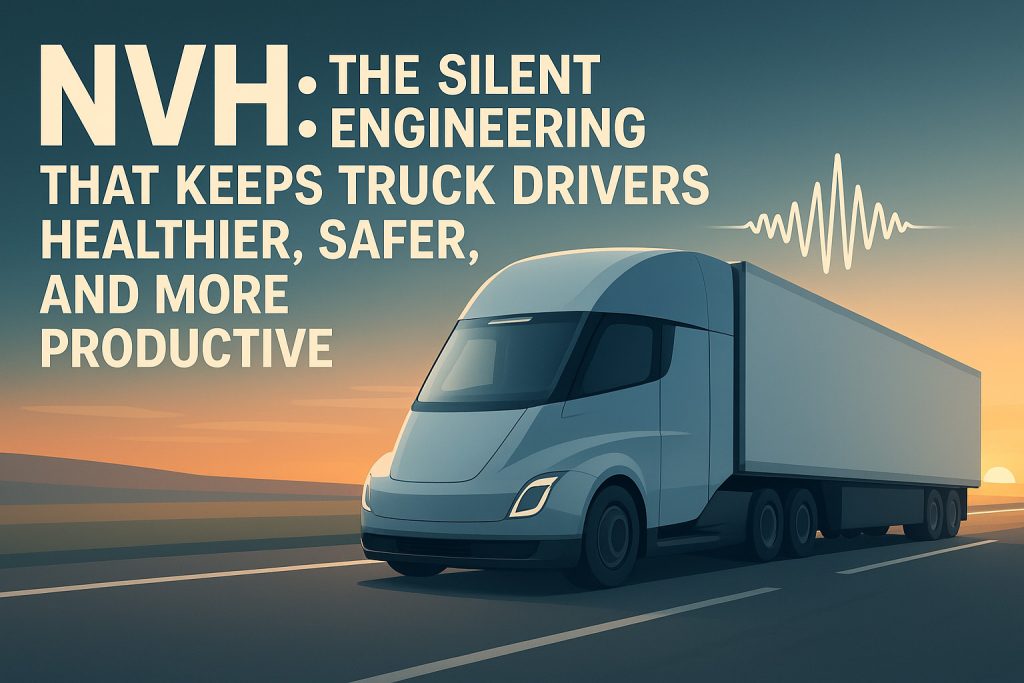The Hidden Heroes of Truck Comfort
NVH stands for Noise, Vibration, and Harshness. NVH engineers work tirelessly to track down unwanted sounds and vibrations in vehicles and eliminate them — a challenge that requires both science and artistry.
Why NVH Matters for Truck Drivers
Constant noise and vibration aren’t just annoying — they’re harmful. Long-term exposure can damage hearing, increase fatigue, and reduce focus. For many drivers, especially in diesel trucks with side exhausts, the left ear takes the most damage.
The Electric Truck Advantage
Drivers moving to electric trucks consistently report having more energy at the end of the day. Quieter cabins reduce stress, improve concentration, and create a safer driving environment.
The Engineering Challenge of Silence
Once major noise sources are reduced, smaller sounds like squeaky dashboard plastics or clicking seals become more noticeable. This forces manufacturers to perfect every detail to achieve true quietness.
From Luxury to Necessity
In the past, being able to hold a normal conversation in a truck was a luxury. Today, it’s a standard expectation. Modern diesel, electric, and hydrogen trucks all aim to meet this need.
Silence Pays Off
Less noise and vibration means less wear on parts, fewer repairs, and longer vehicle life. For fleet owners, NVH improvements save money while keeping drivers healthier and more productive.
Conclusion
NVH is no longer a niche concern — it’s a central part of modern truck design. A quieter truck is a safer, healthier, and more reliable truck. Investing in NVH benefits everyone on and off the road.
